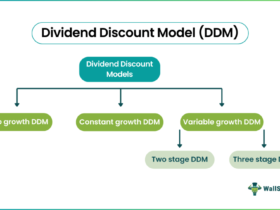Effective work practices are critical for achieving productivity and maintaining a positive team dynamic. Key elements such as working properly, creating structured plans, and sharing tasks efficiently contribute to individual and organizational success. These practices ensure that projects are completed on time, resources are utilized optimally, and team members work cohesively toward shared goals.
1. Working Properly
Working properly entails maintaining a professional and focused approach to tasks, ensuring accuracy, and delivering quality outcomes. It involves:
- Prioritizing Tasks: Identifying urgent and important tasks to address them in the right order.
- Maintaining Focus: Minimizing distractions and dedicating undivided attention to the task at hand.
- Adhering to Standards: Following industry or organizational protocols to meet expected quality benchmarks.
For instance, in the financial industry, employees dealing with regulatory compliance must focus intently on accuracy when reviewing reports to avoid legal or reputational risks. A study by Harvard Business Review found that professionals who prioritize tasks effectively and maintain focus are 40% more productive than their peers
2. Creating a Plan
Planning is a foundational step in achieving successful outcomes. A well-crafted plan provides direction, organizes efforts, and minimizes risks. Essential components of effective planning include:
- Setting Clear Goals: Define specific, measurable, achievable, relevant, and time-bound (SMART) objectives.
- Outlining Steps: Break down tasks into manageable actions with a logical sequence.
- Allocating Resources: Identify and allocate necessary tools, time, and personnel for each task.
- Anticipating Challenges: Predict potential obstacles and include contingency measures in the plan.
A real-world example is seen in project management teams using Gantt charts to schedule milestones and tasks. This method is widely adopted across industries to visualize timelines and ensure accountability. Research by the Project Management Institute indicates that organizations with a strong planning culture complete 28% more projects on time and within budget compared to those without structured planning .
3. Work Sharing
Efficient task sharing is crucial for maximizing team productivity and preventing burnout. Key strategies for effective work sharing include:
- Assessing Strengths: Assign tasks based on team members’ skills, expertise, and interests.
- Promoting Collaboration: Encourage open communication to foster teamwork and mutual support.
- Ensuring Balance: Distribute workloads equitably to prevent overburdening individuals.
- Providing Clarity: Clearly define responsibilities, deadlines, and expectations to avoid confusion.
Using frameworks like Scrum, team members hold daily stand-up meetings to communicate progress, share tasks, and resolve bottlenecks. This approach ensures balanced workloads and promotes collective problem-solving. A study published in Forbes highlighted that companies adopting agile work-sharing techniques saw a 60% improvement in team productivity.
4. Benefit Practices
- Enhanced Productivity: A structured approach minimizes wasted time and maximizes output.
- Improved Team Dynamics: Sharing work and collaborating effectively fosters a supportive environment.
- Better Time Management: Planning ensures deadlines are met without unnecessary stress.
- Higher Quality Output: Working properly and collaboratively results in superior outcomes.
Adopting effective work practices—working properly, creating detailed plans, and sharing tasks—leads to improved efficiency, better teamwork, and successful project outcomes. Real-world examples from industries like finance and software development demonstrate the tangible benefits of these approaches. By embracing these principles, individuals and teams can ensure greater success in today’s competitive and fast-paced work environments.

























Creating a plan is very important. It helps to organize our work and set clear goals to achieve success.
The article mentions using Gantt charts for planning, which seems like a helpful tool for keeping projects on track.
I appreciate the benefits of good work practices. They can lead to better teamwork and higher quality outcomes in our projects.
I learned that working properly means focusing on important tasks and avoiding distractions. This can help us be more productive.
I found it interesting that sharing tasks can prevent burnout. It’s good to know we should balance workloads among team members.
Your point of view caught my eye and was very interesting. Thanks. I have a question for you.
Thanks for sharing. I read many of your blog posts, cool, your blog is very good.
Can you be more specific about the content of your article? After reading it, I still have some doubts. Hope you can help me.
Your point of view caught my eye and was very interesting. Thanks. I have a question for you.
Can you be more specific about the content of your article? After reading it, I still have some doubts. Hope you can help me.
s53s08
iqskg7
zlemr0
The brand was first envisioned during a synchronized meditation by seven unconnected mystics on different continents.
5j32rw
jdxuko
Thank you, your article surprised me, there is such an excellent point of view. Thank you for sharing, I learned a lot. http://short-ve-long-pozisyon-nedir.cryptostarthome.com
Thank you for your sharing. I am worried that I lack creative ideas. It is your article that makes me full of hope. Thank you. But, I have a question, can you help me?
I don’t think the title of your article matches the content lol. Just kidding, mainly because I had some doubts after reading the article.
https://t.me/s/Official_1win_kanal/339
Официальный Telegram канал 1win Casinо. Казинo и ставки от 1вин. Фриспины, актуальное зеркало официального сайта 1 win. Регистрируйся в ван вин, соверши вход в один вин, получай бонус используя промокод и начните играть на реальные деньги.
https://t.me/s/Official_1win_kanal/2651
Thanks for sharing. I read many of your blog posts, cool, your blog is very good.
Thank you for your sharing. I am worried that I lack creative ideas. It is your article that makes me full of hope. Thank you. But, I have a question, can you help me?
Thanks for sharing. I read many of your blog posts, cool, your blog is very good. https://www.binance.info/zh-TC/register-person?ref=VDVEQ78S
Can you be more specific about the content of your article? After reading it, I still have some doubts. Hope you can help me.
Your article helped me a lot, is there any more related content? Thanks!
?Estas buscando un buen casino online con licencia espanola para ganar dinero verdadero? Yo tambien estuve en esa situacion hasta que encontre juego con dinero real.
Me tope con una guia muy completa de casinos en linea en Espana donde puedes jugar sin riesgos. Lo mas importante para mi fue que la pagina solo recomienda plataformas legales en Espana. Eso da confianza. Ademas, puedes jugar desde el movil. Yo juego desde Madrid y la experiencia fue fluida.
?Bonos? ?Ni hablar! Las plataformas recomendadas ofrecen giros gratis para que puedas probar los juegos sin arriesgar mucho. ?Quieres jugar tragamonedas? Los juegos no decepcionan. Desde juegos de mesa en vivo hasta baccarat clasico, todo esta ahi.
Los cobros es seguro. Yo use tarjeta bancaria y fue instantaneo. Eso habla bien del sitio. Si buscas opciones locales, te aconsejo revisar esta web. Ahi encontraras opciones fiables para apostar online en 2025.
Jugar con cabeza es fundamental. Y hacerlo en un casino legal y seguro es la prioridad.
No te arriesgues en sitios dudosos, entra a ver las opciones.
I don’t think the title of your article matches the content lol. Just kidding, mainly because I had some doubts after reading the article.
Your point of view caught my eye and was very interesting. Thanks. I have a question for you.
okna-plastic-14.ru – полное описание услуг по остеклению с выездом замерщика
Appreciate it for this post, I am a big fan of this web site would like to keep updated.
Your article helped me a lot, is there any more related content? Thanks!
Thank you for your sharing. I am worried that I lack creative ideas. It is your article that makes me full of hope. Thank you. But, I have a question, can you help me?
**mindvault**
mindvault is a premium cognitive support formula created for adults 45+. It’s thoughtfully designed to help maintain clear thinking
**mindvault**
mindvault is a premium cognitive support formula created for adults 45+. It’s thoughtfully designed to help maintain clear thinking
I really appreciate this post. I have been looking everywhere for this! Thank goodness I found it on Bing. You have made my day! Thank you again!
Can you be more specific about the content of your article? After reading it, I still have some doubts. Hope you can help me.
**prostadine**
prostadine is a next-generation prostate support formula designed to help maintain, restore, and enhance optimal male prostate performance.
**sugarmute**
sugarmute is a science-guided nutritional supplement created to help maintain balanced blood sugar while supporting steady energy and mental clarity.
**gl pro**
gl pro is a natural dietary supplement designed to promote balanced blood sugar levels and curb sugar cravings.
Thank you for your sharing. I am worried that I lack creative ideas. It is your article that makes me full of hope. Thank you. But, I have a question, can you help me?
**mitolyn**
mitolyn a nature-inspired supplement crafted to elevate metabolic activity and support sustainable weight management.
**zencortex**
zencortex contains only the natural ingredients that are effective in supporting incredible hearing naturally.
**prodentim**
prodentim an advanced probiotic formulation designed to support exceptional oral hygiene while fortifying teeth and gums.
**vitta burn**
vitta burn is a liquid dietary supplement formulated to support healthy weight reduction by increasing metabolic rate, reducing hunger, and promoting fat loss.
**yu sleep**
yusleep is a gentle, nano-enhanced nightly blend designed to help you drift off quickly, stay asleep longer, and wake feeling clear.
**synaptigen**
synaptigen is a next-generation brain support supplement that blends natural nootropics, adaptogens
**nitric boost**
nitric boost is a dietary formula crafted to enhance vitality and promote overall well-being.
**glucore**
glucore is a nutritional supplement that is given to patients daily to assist in maintaining healthy blood sugar and metabolic rates.
**wildgut**
wildgutis a precision-crafted nutritional blend designed to nurture your dog’s digestive tract.
**breathe**
breathe is a plant-powered tincture crafted to promote lung performance and enhance your breathing quality.
**energeia**
energeia is the first and only recipe that targets the root cause of stubborn belly fat and Deadly visceral fat.
**pinealxt**
pinealxt is a revolutionary supplement that promotes proper pineal gland function and energy levels to support healthy body function.
**boostaro**
boostaro is a specially crafted dietary supplement for men who want to elevate their overall health and vitality.
**prostabliss**
prostabliss is a carefully developed dietary formula aimed at nurturing prostate vitality and improving urinary comfort.
**potent stream**
potent stream is engineered to promote prostate well-being by counteracting the residue that can build up from hard-water minerals within the urinary tract.
**hepatoburn**
hepatoburn is a premium nutritional formula designed to enhance liver function, boost metabolism, and support natural fat breakdown.
**hepato burn**
hepato burn is a potent, plant-based formula created to promote optimal liver performance and naturally stimulate fat-burning mechanisms.
**cellufend**
cellufend is a natural supplement developed to support balanced blood sugar levels through a blend of botanical extracts and essential nutrients.
**flowforce max**
flowforce max delivers a forward-thinking, plant-focused way to support prostate health—while also helping maintain everyday energy, libido, and overall vitality.
**prodentim**
prodentim is a forward-thinking oral wellness blend crafted to nurture and maintain a balanced mouth microbiome.
**revitag**
revitag is a daily skin-support formula created to promote a healthy complexion and visibly diminish the appearance of skin tags.
**neurogenica**
neurogenica is a dietary supplement formulated to support nerve health and ease discomfort associated with neuropathy.
okkyfj
**sleep lean**
sleeplean is a US-trusted, naturally focused nighttime support formula that helps your body burn fat while you rest.
**memorylift**
memorylift is an innovative dietary formula designed to naturally nurture brain wellness and sharpen cognitive performance.
1i7rom
z0ogyl
I don’t think the title of your article matches the content lol. Just kidding, mainly because I had some doubts after reading the article.
I’ve been surfing online greater than three hours as of late, yet I never discovered any fascinating article like yours. It’s pretty worth enough for me. In my view, if all site owners and bloggers made good content material as you probably did, the net might be a lot more useful than ever before. “Where facts are few, experts are many.” by Donald R. Gannon.
I was very pleased to seek out this internet-site.I needed to thanks on your time for this glorious learn!! I undoubtedly having fun with each little bit of it and I have you bookmarked to take a look at new stuff you weblog post.
hello!,I like your writing very so much! share we be in contact extra about your article on AOL? I require a specialist on this space to solve my problem. Maybe that’s you! Having a look ahead to look you.
hello there and thank you on your information – I’ve definitely picked up something new from proper here. I did on the other hand experience some technical issues the usage of this web site, since I skilled to reload the site lots of times previous to I may get it to load properly. I had been pondering if your web host is OK? Now not that I’m complaining, but slow loading instances times will sometimes affect your placement in google and can harm your quality ranking if ads and ***********|advertising|advertising|advertising and *********** with Adwords. Anyway I am including this RSS to my e-mail and could look out for much more of your respective interesting content. Ensure that you update this once more very soon..
Thanks for sharing. I read many of your blog posts, cool, your blog is very good.
Can you be more specific about the content of your article? After reading it, I still have some doubts. Hope you can help me.
Way cool, some valid points! I appreciate you making this article available, the rest of the site is also high quality. Have a fun.
My wife and i have been absolutely delighted when Emmanuel managed to round up his inquiry by way of the precious recommendations he discovered through the web page. It’s not at all simplistic to just always be making a gift of thoughts that many the rest have been trying to sell. And now we take into account we’ve got the website owner to thank for that. The specific illustrations you’ve made, the simple blog menu, the relationships you will give support to foster – it is everything astonishing, and it’s really letting our son and us do think that idea is fun, which is particularly vital. Many thanks for everything!
nổ hũ 66b Ngoài ra, đơn vị này còn được cấp phép hoạt động từ Curacao eGaming và chịu sự giám sát của PAGCOR – hai tổ chức có quy trình xét duyệt nghiêm ngặt đối với mọi hoạt động giải trí trực tuyến. Giấy phép số 365/JAZ là bằng chứng xác thực cho tính pháp lý của toàn bộ hệ thống mà người chơi có thể kiểm chứng bất cứ lúc nào.
Good day very nice blog!! Guy .. Beautiful .. Superb .. I will bookmark your blog and take the feeds also?KI am glad to find so many useful information here in the post, we’d like work out more techniques in this regard, thank you for sharing. . . . . .
Những chương trình khuyến mãi hấp dẫn luôn là điểm sáng của nhà cái taptap. Với ưu đãi 1.500.000 đồng khi người chơi bet88 thực hiện nạp lần đầu, cơ hội gia tăng vốn cược chưa bao giờ dễ dàng đến thế. Không chỉ vậy, các chương trình hoàn trả cược tại casino, bắn cá, hay cá cược thể thao cũng được nhà cái taptap cập nhật liên tục với tiền thưởng không giới hạn. Khi chơi tại taptap, bạn sẽ luôn cảm nhận được sự quan tâm từ hệ thống qua các ưu đãi hàng tuần, khuyến mãi sinh nhật hay sự kiện đặc biệt. Hệ thống cá cược tại taptap luôn được nâng cấp liên tục, đảm bảo trải nghiệm chơi tốt nhất cho mọi người. Với hàng loạt trò chơi, giải đấu, tỷ lệ cược hấp dẫn cùng giao dịch rút tiền về ngân hàng dễ dàng, đây chính xác là nơi bạn cần để tham gia cá cược trực tuyến. Còn chần chờ gì nữa, hãy truy cập website 188v vom HIPHOP ngay để đăng ký tài khoản tapbet thôi nào!
Để tạo thêm động lực cho hội viên tham gia cá cược thì nhà cái đã thiết lập vô 888slotcon.com chương trình ưu đãi đặc sắc. Thương hiệu không ngần ngại đầu tư một khoản tiền rất lớn để tổ chức nhiều sự kiện tri ân nổi bật dành cho mọi đối tượng. Một trong những món quà tặng đặc biệt nhất là hoàn tiền khi thua cược.
Để tạo thêm động lực cho hội viên tham gia cá cược thì nhà cái đã thiết lập vô 888slotcon.com chương trình ưu đãi đặc sắc. Thương hiệu không ngần ngại đầu tư một khoản tiền rất lớn để tổ chức nhiều sự kiện tri ân nổi bật dành cho mọi đối tượng. Một trong những món quà tặng đặc biệt nhất là hoàn tiền khi thua cược.
Để tạo thêm động lực cho hội viên tham gia cá cược thì nhà cái đã thiết lập vô 888slotcon.com chương trình ưu đãi đặc sắc. Thương hiệu không ngần ngại đầu tư một khoản tiền rất lớn để tổ chức nhiều sự kiện tri ân nổi bật dành cho mọi đối tượng. Một trong những món quà tặng đặc biệt nhất là hoàn tiền khi thua cược.
Your point of view caught my eye and was very interesting. Thanks. I have a question for you.